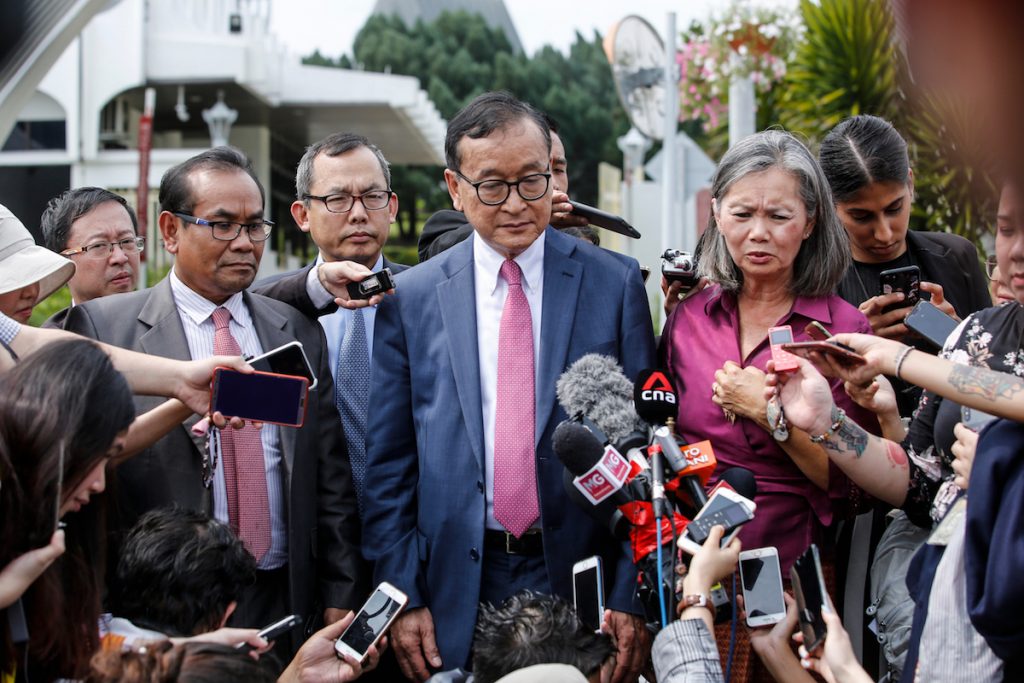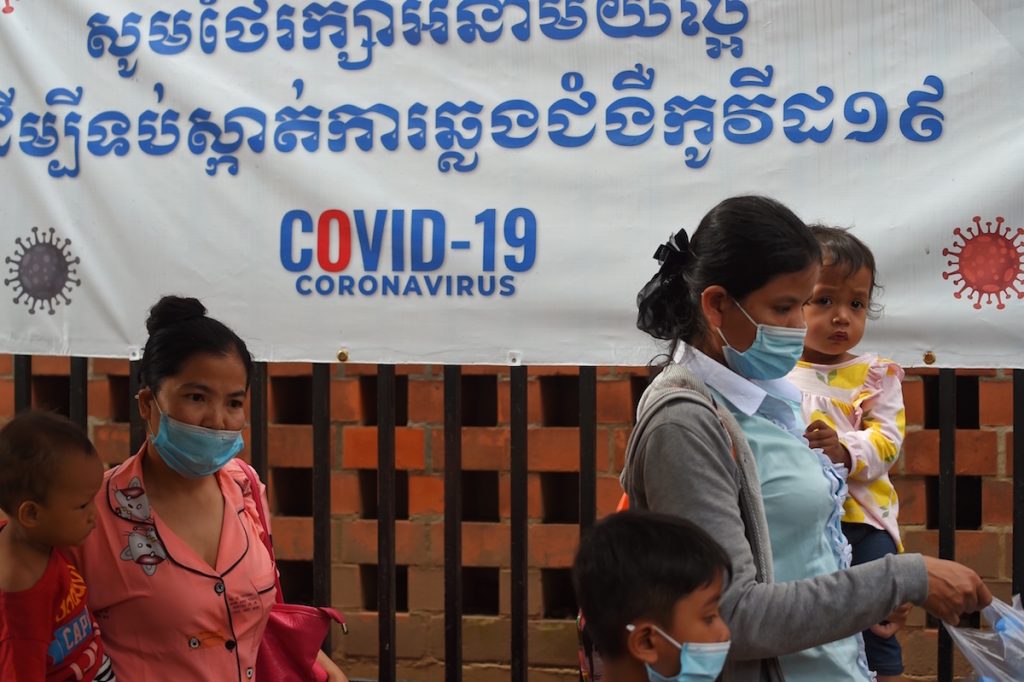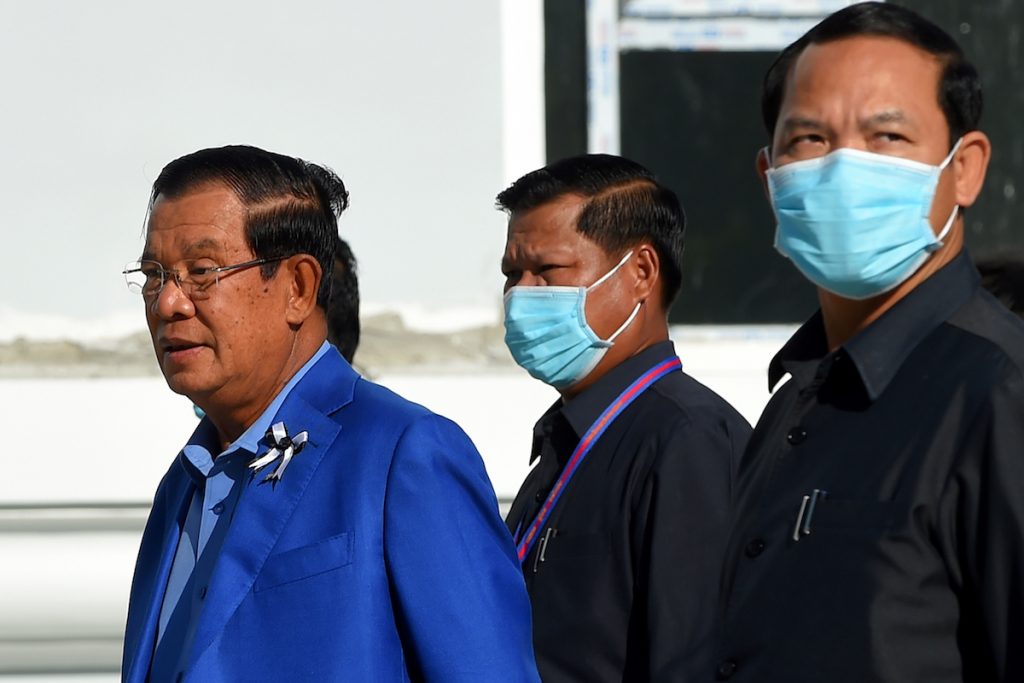Sok Kimseng, 25, is not the kind of man easily scared. The labor and rights activist doesn’t fear being locked up for protesting against Cambodia’s authoritarian government.
“It’s only my family that’s worried about my safety,” he said.
But Kimseng, who earns an income as a tuk tuk driver in Phnom Penh, should have every reason to be afraid. In late July the Cambodian government launched a new crackdown on those who dare to criticize the its policies and decisions. According to the Cambodian Center for Human Rights at least 28 people have since been arrested, including environmental activists, youth activists and a trade union leader.
The Cambodian government claims it’s merely following the rule of law but like many others in the Southeast Asian country, Kimseng believes otherwise.
“The government is just making excuses, because those charges don’t reflect the reality,” Kimseng told LiCAS.news. “To me it reflects that this government fears to lose power.”
The crackdown began with the arrest of prominent union leader Rong Chhun on July 31. He was charged with ‘incitement to cause social unrest’ after raising concerns over a border issue between Cambodia and Vietnam. The government accused Chhun of spreading ‘fake news’. He’s currently held in pre-trial detention.
In the weeks following Chhun’s arrest, several former members of the banned opposition party Cambodian National Rescue Party (CNRP) were also arrested, as were several youth activists. In early Sept. 3 young activists of the environmental group Mother Nature were arrested and charged with incitement after announcing plans for a short march to the house of Prime Minister Hun Sen.

Just last week, seven CNRP activists were sentenced to prison for five to seven years on charges of treason, because they publicly supported the plan of exiled opposition leader Sam Rainy to return to Cambodia.
The new crackdown has brought fear to activists. Ul Vann, the president of the Cambodian Youth Network, said that especially the targeting of youth activists has drawn concern.
“The government targets youth who are campaigning for social justice. We now have to be very careful with our activities, including me,” said Ul Vann. “I need to be careful with what I do and say.”
Repression is far from new in Cambodia, which has run as a one-party state since controversial elections in 2018. In 2017 the country’s most popular opposition party, the CNRP, was banned from politics. Its leader Kem Sokha was accused of espionage and has been on trial since January this year. Human rights activists, journalists and union workers have also been targeted in crackdowns.
The recent arrests are a threat to anyone seeking justice in Cambodia, Ul Vann told LiCAS.news.
“This gives us a lot of pressure when we are doing social activities and when we raise sensitive topics. The spokesperson of the Ministry of Interior has even announced that the government will continue to arrest anyone who leads a movement that could disturb public order,” Ul Vann said. “That’s a threat to citizens who seek justice and ask for the release of arrested activists.”

COVID-19
The Cambodian government is also feeling increased pressure from the new coronavirus pandemic. Although the number of coronavirus infections is low in Cambodia, the virus is having a devastating impact on the country’s economy. Hundreds of thousands of people have lost their jobs and incomes, while many others are unsure about their future.
Although the government has been given money to poor families and is getting support from China, a clear strategy to revive the economy over the long term is yet to be revealed. Frustration and anger about the economic downturn could turn the people against the government.
Paul Chambers, a lecturer at the Center of ASEAN Community Studies at the Naresuan University in Thailand and a long-time Cambodia watcher, said the government is worried.
“That is partly why it’s trying to acquire as much Chinese aid as possible, to help dampen the crisis’s effects on the population,” Chambers said. “The regime’s strategy appears to be to use a two-pronged approach: enhanced repression combines with more state economic hand-outs,” he said.
Criticism
The repression has again put Cambodia under criticism. The UN High Commissioner for Human Rights recently called on the government to release the arrested activists immediately and unconditionally.
“The current situation marks a deepening of the government’s intolerance to dissent and repression of the rights to freedom of expression, peaceful assembly and association,” its spokesperson Ravina Shamdasi said in a statement.
Human Rights Watch (HRW) also condemned the attacks on activists. Phil Robertson, the deputy director of HRW’s Asia division, said that “it can’t be considered ‘rule of law’ when the law can be defined in any way the government wants.”
“The Cambodian government is weaponizing overbroad statutes on ‘incitement’ and ‘plotting’ to go after critics, clearly violating basic human rights like freedom of expression and peaceful public assembly,” he said.
Speaking about last week’s conviction of seven opposition activists, Robertson told LiCAS.news that advocating for Rainsy’s return to Cambodia should not be considered a crime.
“These convictions are unjust, and yet another example of the Cambodian government trying to wipe out what remains of the now banned CNRP,” he said.

The government however told local media several times in the past few weeks that all actions were legal and necessary for Cambodia’s security and stability. Over the past years, Hun Sen has repeatedly warned that Cambodia could see a ‘color revolution’ or even a civil war if his long-lasting rule is too much challenged.
Chambers said we should not expect Hun Sen’s government to change its methods anytime soon.
“The regime will continue pursuing this tactic as long as possible because the political-economic pyramid of power which it represents will only continue as long as Hun Sen perseveres in power,” he said.
“Any sign of weakness from Hun Sen would start to spell the end of his hold on power. He cannot afford that. As such, his regime uses repression and dependence on foreign powers to prop up his continued hold on power,” Chambers said.
But Cambodian activists, many of them being young and well-educated, aren’t giving up either.
“As people in a democratic county we have the right to join the movement to protect the environment, to demand social justice and to ask the government to respect human rights,” Cambodian Youth Network director Ul Vann said.
“To be an active citizen, it’s important to debate, to reflect on the government and to raise our concerns so that our county can make more progress.”






